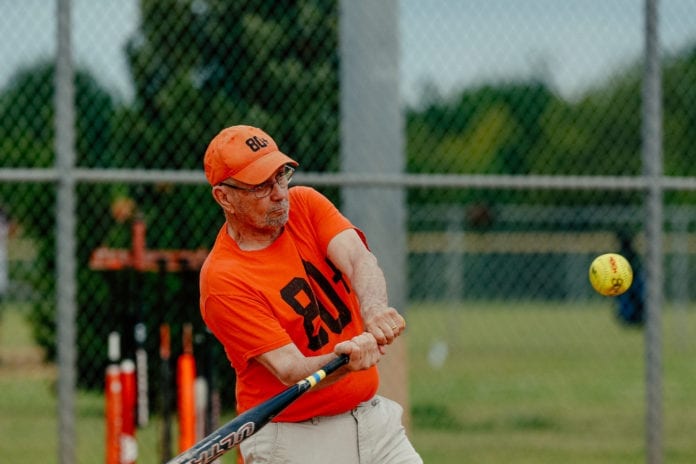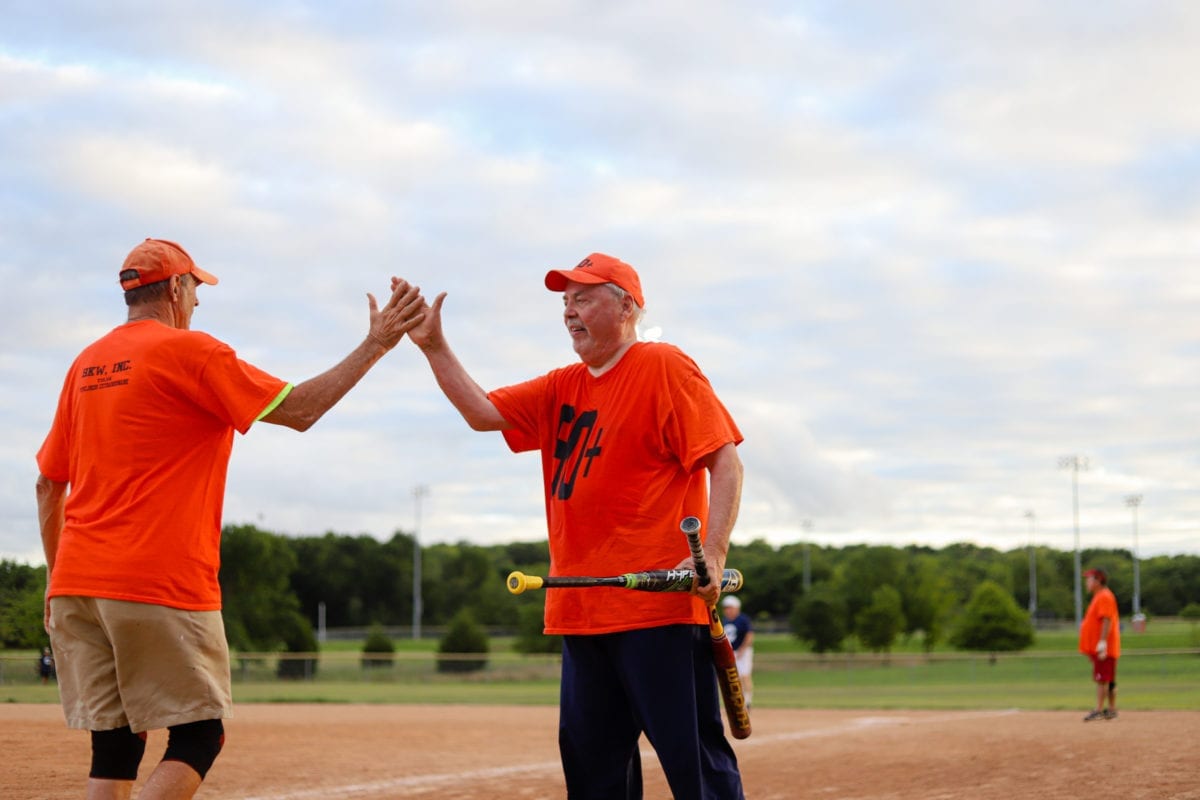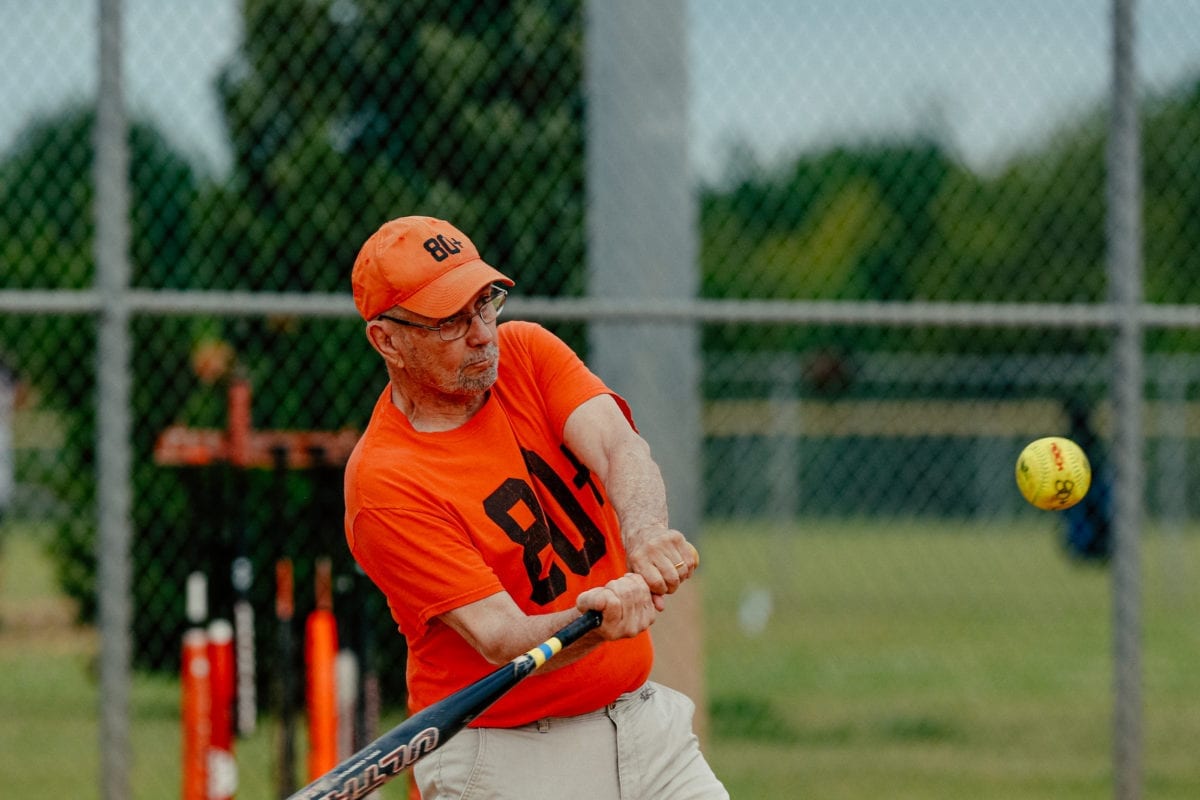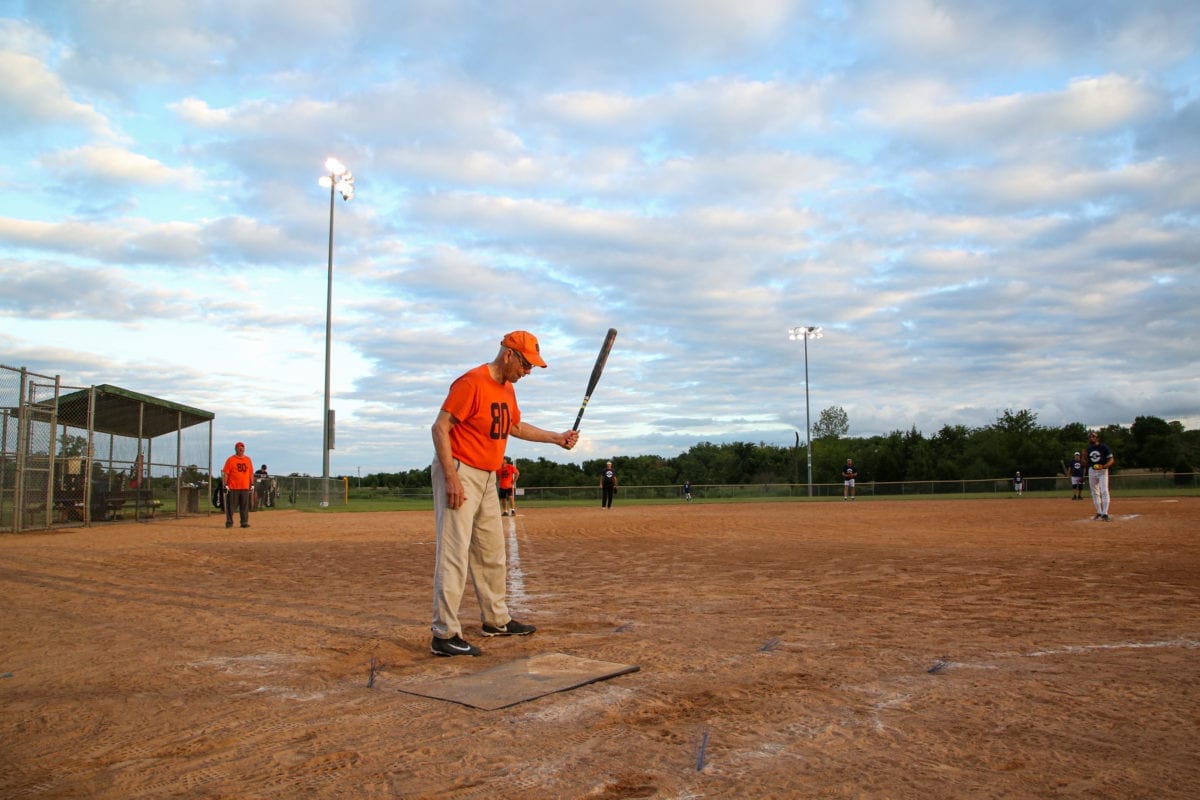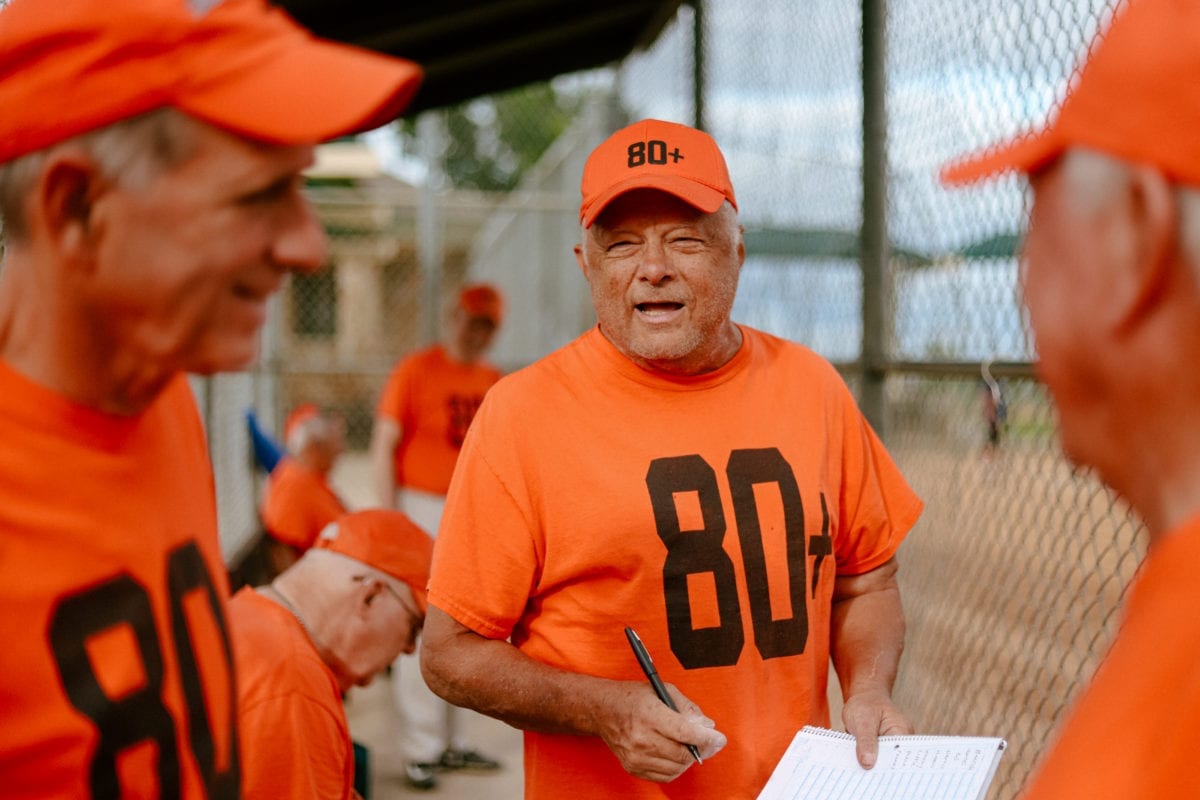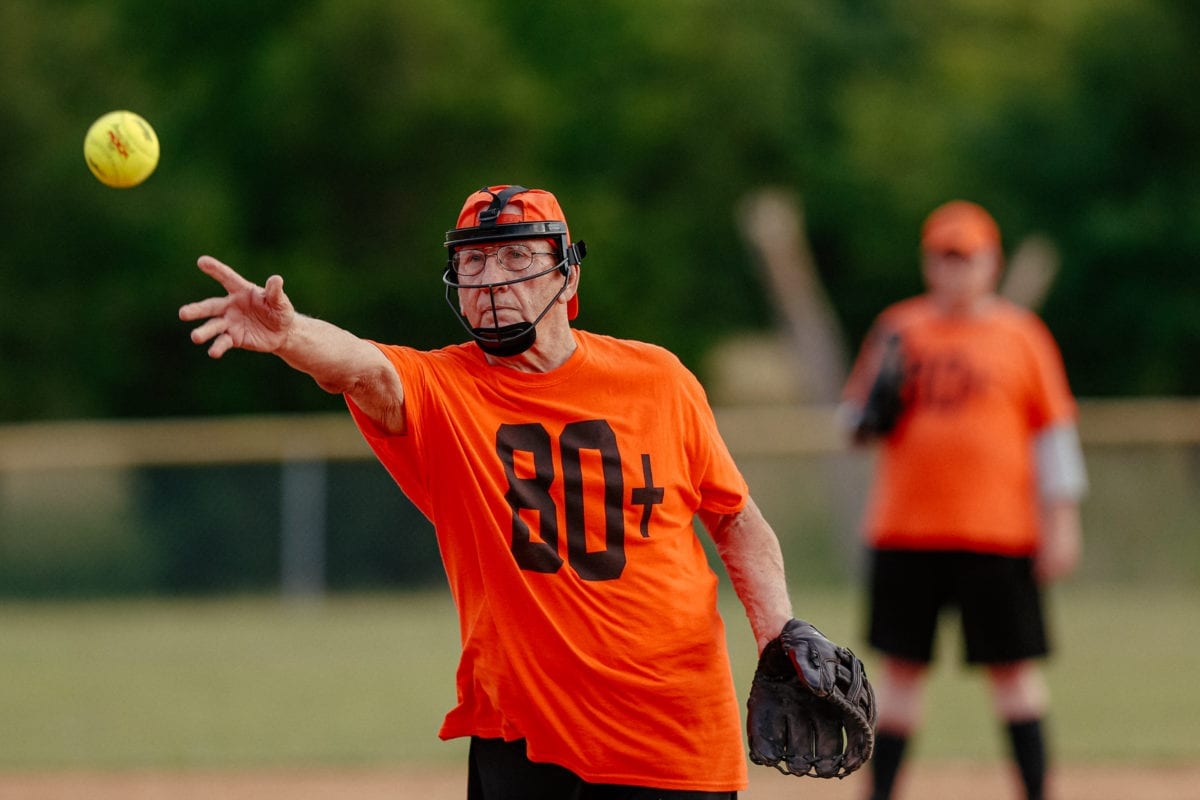I’ve long thought that one of the secrets of life is always looking forward to something. For the past several years, one of the things I’ve been looking forward to is being in an over-70 softball league.
Like a lot of baby boomer kids, I grew up loving and playing baseball, even though I wasn’t much good at it. By the time I got to high school, I tried to be a pitcher, but, because I couldn’t throw hard enough to break glass, I developed a little fluttery knuckleball, which was my go-to pitch during my days as a Chelsea Green Dragon.
Whatever good results I experienced came largely because our top two pitchers at the time, Doug Payne and Philip Fink, were farm boys whose regimen of chores had given them the strength to throw hard; most of my time in real games came after one or the other of those gentlemen had spent several innings blowing fastballs by the opposition and coach Rupert Cross called me in as a closer.
I’m convinced it was the sudden drop in velocity coming from the mound that led to whatever limited success I had as a high school hurler. I relied mightily on the element of surprise. Our catcher, Roy Morrison, once told me that an opposing hitter, after flailing unsuccessfully at my first offering, asked, “What’s that guy trying to do? Break my back?”
It wasn’t until I attended Oklahoma State University, and made a switch to first base in an intramural softball league, that I sort of blossomed. And that momentum carried me through a lot of years: my time in the Navy, where I played beer-fueled triple-headers in the boiling, tropical heat of the Philippines on stops between San Diego and Vietnam; as a faculty member at what was then Oscar Rose Junior College in Midwest City; and, for more than 20 years in various media leagues, during my stint as a Tulsa World entertainment writer.
At the World one day, my friend and colleague David MacKenzie showed me a wonderful New York Times story about an over-70 game, and that was when I decided that once I got close to becoming a septuagenarian, I’d start looking around to see if there were any of those kinds of softball opportunities in the area.
As it turned out, I could’ve kept playing after my age-58 retirement from the World. I know now that Tulsa offers senior-league play at two levels: ages 45-60, and 60 and over. Because I didn’t find that out until recently, I did little more than occasionally throw the ball around or shag flies in the dozen-plus years between my leaving the World and now.
The rustiness certainly showed when I took the diamond for the first time with player-coach Butch Webb’s team, called 80-Plus. I found that group through an ad in the World calling for “wiry old men” who wanted to play softball. (If you happen to be of the right age and interested in playing, that 24-hour number is 918-836-6767.)

John Wooley (right) high-fives John Harris during a game for the Tulsa Senior Softball Leage team, 80+. 
Mike Little bats for the Tulsa Senior Softball Leage team, 80+. 
Mike Little prepares to bat for the Tulsa Senior Softball Leage team, 80+. 
C.J. Hardesty jokes with his teammates on the the Tulsa Senior Softball Leage team, 80+. 
David Adams pitches for the Tulsa Senior Softball Leage team, 80+.
Holding down second base, I watched as a batter connected and the ball shot in my general direction. Unfortunately for me, my brain didn’t have time to transmit my actual age to my body, so I dove for it. Even as the ball skittered past, pain exploded like shrapnel up and down my right leg, and I suddenly understood what a teammate had told me about playing at this time in our lives.
“The secret,” he’d said, “is to ease into it.”
I hadn’t, and my error cost me about six weeks away from the field. During that time, I gimped around in agonizingly slow motion like Arte Johnson’s old-man character, Tyrone F. Horneigh, on Rowan and Martin’s Laugh-In. Once, as I was on my way to do my radio show at the University of Tulsa’s Kendall Hall, I had the sensation of being frozen like an iceberg – moving at a glacial pace – as students flowed around me on their way to classes. It was disconcerting, to say the least.
When I returned to action, I heeded my teammate’s advice and took it a lot slower – learning as I went along.
I learned that some of the rules are different at this level. In order to avoid collisions, for instance, the 60-plus players run past bases – including home plate – rather than to them. The pitcher wears a face mask for protection from line drives, two strikes (including foul balls) and a batter’s out, and three balls and he walks. Generally speaking, batters jog rather than run around the bases, and there’s not a lot of diving for grounders.
I also realized that the arm is the last part of the body to come back to life. I found this out one night when the opposing team had the bases loaded and I was playing second. Mike Little, a fine offensive and defensive ballplayer, was behind the plate, and I made up my mind that if a ground ball came my way, I’d throw to him to get the lead runner.
Sure enough, that’s what happened. Making a good grab, I gloved the ball and heaved it toward Little with all the strength I could muster – and then watched as it made a pitiful little arc, hit the ground just in front of the pitcher’s mound and rolled ineffectually to a stop as our opponents jogged merrily around the bases.
Another note about this league: when you make a good catch or hit the ball solidly, you get a lot of affirmation – not just from your teammates, but from the other side as well. Sure, there’s the occasional conflict that springs up when people play competitively, but far more frequent is a feeling of comradeship, of all being in this together, of somehow cheating time and playing the sandlot game we first latched onto many decades ago.
Webb (aka Supercoach) has changed the name of our team this year. We’re now 85-Plus, the oldest team in the league. The name has always reflected his age, in increments of five years; some of the guys have been with him so long that they proudly wear their original jerseys from a time when they were collectively known as 60-Plus. Besides Supercoach, several of my other teammates are approaching, or beyond, 80 years of life on this planet. And even if they have a tendency to sometimes let screaming liners get past them or misjudge fly balls, they still play like they’re kids. All of us do.
Sometimes, standing out there in the infield under the lights, I think about something my dear, departed friend Steve Ripley said about music (and I hope my paraphrasing does him justice). His theory was that you started out playing real simple stuff for fun and then, as you got better and better, your music became more complex and much deeper. But if you stayed with it, at some point it became simple again. At that point, it was different. It had the weight of years behind it.
It seems to me that’s a lot like playing softball at my age and the ages of my teammates. We know that we’re not going to get any better – it’s just the opposite – but we’re not spending too much time lamenting our eroding skills or recalling our dazzling feats on the field. Instead, we’re showing up a couple of times a week – happy to be on a diamond once again, knowing how blessed we are to still be playing this beautiful spring and summer game in the autumns and winters of our lives.






















